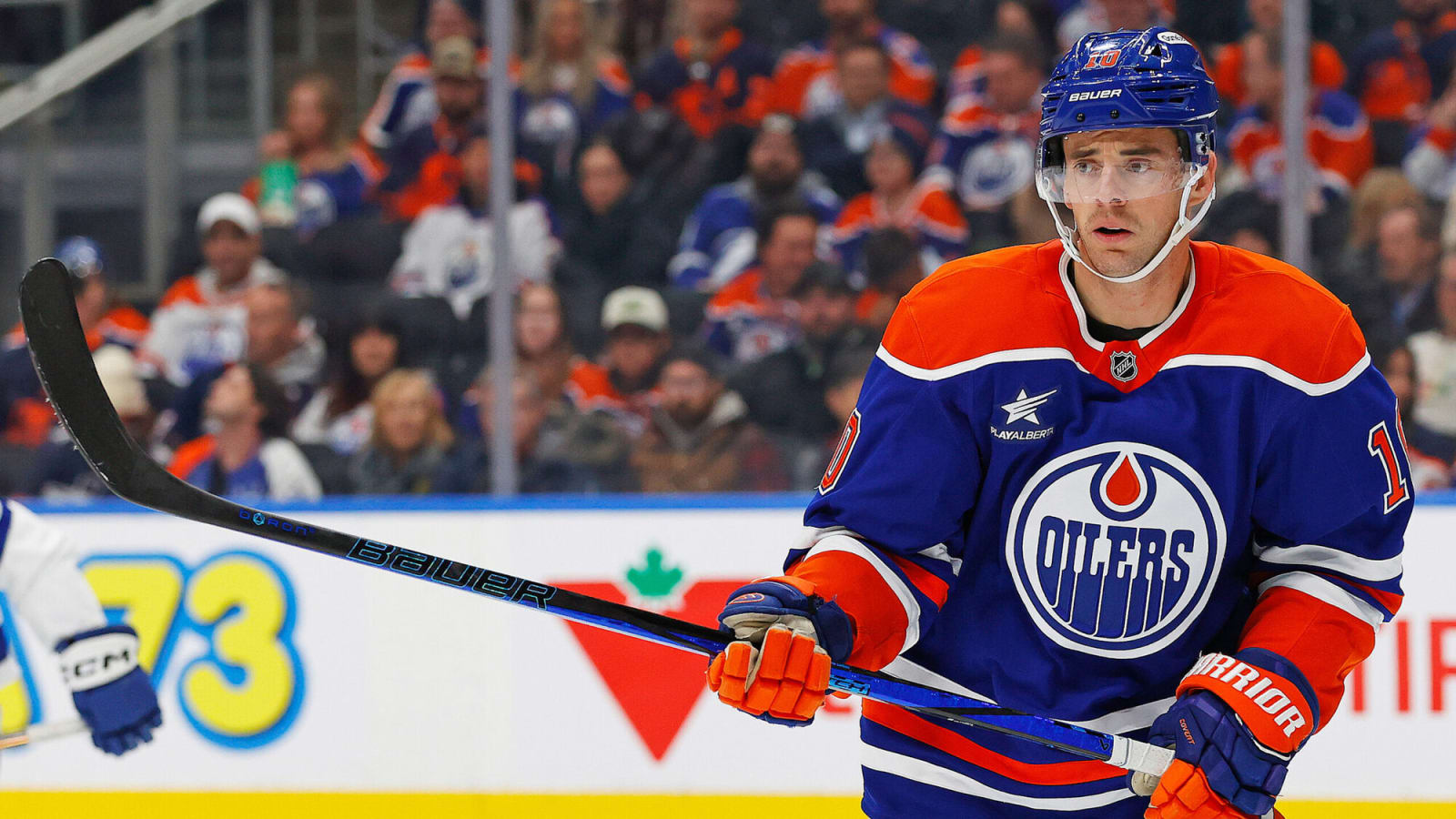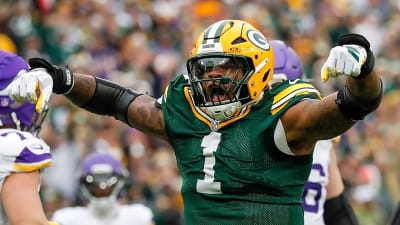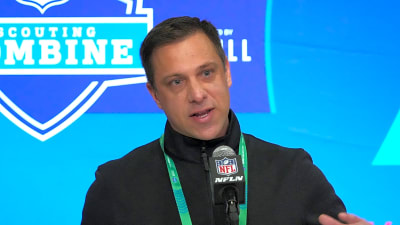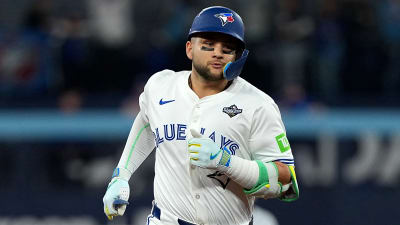
Derek Ryan’s journey to the NHL is one of the most unexpected in league history.
He wasn’t drafted. His 18 and 19-year-old years were spent on the last-place Spokane Chiefs in the Western Hockey League. He led the Chiefs in scoring at 19 with 61 points in 72 games. He did make the playoffs his final season as a 20-year-old in 2007, but the Chiefs lost in the first round. After his season ended, he signed in the now-defunct United Hockey League, a low-level minor pro league. He played three regular season games and 13 playoff games. He wasn’t on any NHL team’s radar, so he wisely used his WHL scholarship and committed to the University of Alberta.
The NHL wasn’t a consideration when he was 20.
He had a solid rookie season finishing sixth in team scoring and helped the Bears win the National Championship. He finished second in scoring in his second and third seasons, before leading the Bears in scoring his final year with 17 goals and 47 points in 28 games. He improved every year. He felt he matured as a person and a player. He loved hockey and still wanted to keep playing, and luckily, he had the support of his loving partner Bonnie. They started dating at 18 and she’s been with him every step of his journey.
“She sacrificed so much along the way,” said Ryan. “She encouraged me to play and was always up for an adventure as we moved around.”
Ryan was 24 when he left the Golden Bears. Four years after leaving the WHL, the NHL still wasn’t on his mind. But little did he know, it would become a huge part of his life, and 14 years later the NHL is the league he ended up spending the most time in.
On December 22nd v. Ottawa Ryan joined Pierre-Edouard Bellemare (700 GP) as the only two players in NHL history to play 600 games after making their NHL debut at 29 years of age or later. Viacheslav Fetisov (546) is the only other player to play 500 games.
Ryan’s journey to the NHL is an incredible story of growth, perseverance, support and determination. Last week, I spoke with Ryan in the Oilers dressing room about his journey.
Jason Gregor: You’ve had an amazing career. Tell me about the decision and motivation to return to North America as a 28-year-old and chase the long odds of the NHL dream.
Derek Ryan: Yeah, I mean, it’s a long story. I’ll try and keep it brief, but I was playing in Europe, having a good time, making good money. I kind of made a life for myself and my family.
My first child was born there, and so, life was good. Didn’t necessarily have to come back to North America, but I was surrounded by a lot of people who are smarter than I am. My wife, my agent, my family, you know, they just kind of pushed me to take the chance.
They said this is your one opportunity after my year in Sweden. Most importantly, I had that good year there, and NHL teams were starting to look at me after that. So that was my chance, and the story doesn’t end there. I signed with Carolina and basically spent the whole season in the American Hockey League and making less money than I was in Europe. Travel is a lot worse in the American League.
The lifestyle is a lot harder than it is in Europe, so that was a grind, mentally and physically, and I had to stick with it. I got called up at the end of the year, and I kind of made my mark there. I scored a couple goals and thought I put a good foot forward, but again, the next year I had to start in the American League again.
There was a decision before that year whether I even come back or go to Europe, and is this time to cash in? Is this going to work out? And again, the people around me kind of pushed me to stick with it, and like I said, I started in the American League again for 10 games, and I had a really good start. Carolina was struggling, and they called me up and thankfully I haven’t looked back since.
Gregor: It’s a great story about perseverance and believing in yourself, and the need to have a good support group around you. You made the choice to chase your dream, and it wasn’t about the money. Having your wife encourage you to chase the dream and not worry about the money had to be a big boost.
Ryan: Yeah, totally. I think that’s kind of the advantage that I had at that point in my life, is that I was a little bit older, a different stage of life, had a wife, had a kid, and plans for more children at that point, so I guess what I’m trying to say is the picture becomes bigger than just me. I’m not just a 21, 22-year-old thinking about myself, I’m thinking about the dream that I’ve had, but also the people that I’m trying to take care of, and they’re thinking about me as well. There’s a lot of decisions that go into it, a lot of factors, there’s a lot of stepping stones along the way.
Yeah, I think it’s a motivating story, not just for my family, but for kids across the world. Hockey or whatever sport or whatever you’re doing in life, it’s a story of perseverance, sticking with it, but also just kind of taking care of what’s important, what’s important right in front of you right now. I wasn’t thinking about the NHL when I was playing for the (U of A) Bears or playing in Austria or Sweden. I was thinking about it a little bit when I was in the American League, but you know, every step of the way, you’re just focused on how can I be the best that I can be right now, where I am, and I mean, I think in life, that’s pretty useful.
Gregor: Your ability as a player must have changed a little bit before getting to the NHL. What did you focus on in Europe that allowed you to become a better player and maybe re-open the eyes of NHL scouts that you were a legitimate prospect?
Ryan: I think that’s another advantage that I had having my journey, kind of touching every rung of the ladder and different ladders along the way. I guess you could say I was able to change and adapt and grow in my game. I grew a lot as a Golden Bear on and off the ice. I matured, went to Austria, which is a pretty high-flying, high-scoring league — 5-4 or 6-5 games — so I think I learned a little bit of the offensive part of the game there, how to score and how to make plays. And the transition from Austria to Sweden was incredibly hard because Sweden is the opposite.
If it is a 1-0 game and Sweden then that is the best hockey game ever, so it’s really defensive, big goalies, big defensemen, strong, hard to get to the net. So, that’s the point in my career where I think I learned to play the defensive side a little bit more. I learned to grow my game, play the 200-foot centerman role, and I learned to score in hard, tight areas. That’s how you have to score there, so yeah I went from there and then, I mean, the change from European hockey to North America is huge.
The size of the ice is obviously different and the game is a little bit rougher here and more grinding along the boards, and the American League’s definitely a lot of that. I had to learn that and incorporate that in my game as well. So, as you see, every step in the journey, it kind of added a layer to my game and I grew and adapted, and the same is true for my time in the NHL. I’ve had to grow and adapt what I can do and what I can provide for the team here.
Gregor: Every coach I’ve ever talked to that’s had you as a player, the one repeated comment is your hockey smarts. Where do you think that comes from and can you describe for how important that is maybe for young players to really get a sense of how to play the game?
Ryan: Well, I think it’s huge, especially in today’s day and age where kids have so many resources to hone their skills. Every kid growing up now can skate, can shoot, can handle the puck way better than I could have back then just because of their training resources and what they’re able to do. However, I think quite a few of them struggle with how to play the game and kind of how to put it all together. They have all the tools, but they can’t put it all in the toolbox, so to speak.
Where did I get that? I don’t know. I mean, I think it just kind of came natural to me.
I guess it’s something that’s maybe god-given a little bit, but you kind of learn, as a guy, a player like I am. I’m not the fastest guy. I’m not Connor McDavid. Nobody is, but I don’t have his speed or his hands or his vision. You kind of have to grow your game a little bit a piece at a time, and I see guys like him, and I can add a piece of his game. Maybe I can see his vision or his poise with the puck, and then you see Leon (Draisaitl).
I don’t have his big body. I can’t protect the puck like he does, but I can see a little bit of layers that I can add. I can’t be like him, but I can add a little piece of his game, so I think I’ve just been good at that. I’ve been good at seeing other players, what they’re good at, and trying to, not emulate them, so to speak, but just add a little bit of their game to my game.
Gregor: You mentioned how you learned how to score in Sweden in small spaces. What did you learn? How do you become successful at scoring in small spaces?
Ryan: I think you’re just, well, there’s a lot to that as well, but the simplest thing is you have to be willing to get inside, get to the net, get to the scoring areas. Coaches across the league in the NHL, I’m sure, know the stats of where goals are scored from. There are not many guys who can score from outside the big house or whatever you call it. I don’t have the Ovie shot (Alex Ovechkin) or, I mean, even Kapi (Kasperi Kapanen) has an amazing shot. I don’t have that. So, you have to find ways to get inside.
And I don’t have a huge body either, so I can’t just go get to the net and stay there. The guys are going to be able to push me out. So, it’s working on timing, getting there at the right time when the puck’s going to be there, kind of meet it there.
There’s just lots of little things that I learned in Sweden because on the big ice in Sweden, they protect the middle. You can fly around the outside all day long. They’ll give you that, but you have to learn how to penetrate that, how to get in the middle and get to those scoring areas and get there when it counts.
Gregor: You’ve created something you’re very good at. You’re an elite face-off guy, and many of the best face-off guys are big. I don’t know if you want to give away tips at it, but what allowed you to get better as a smaller guy on face-offs?
Ryan: Well, with today’s video, I don’t think there’s any secrets that I could be hiding to keep me at the top or wherever I am, but I don’t know. I’m smaller, so I guess that gives me a little bit of leverage. I can get underneath people.
I’ve kind of grown and added layers to that in my NHL career as well. I started my career in Carolina and getting a lot of O-zone face-offs, and it’s a lot easier to win draws in the O-zone. You can [put your stick] down second.
You have an advantage there, and there are guys in Carolina like Jordan Stahl, Jay McClement, who are taking a lot of D-Zone draws, so I could watch them. Obviously, they’re bigger bodies, and they have a different style than I do, but again, I can see what they’re doing, tying guys up or trying to get over the dot a little bit more, owning the dot, so to speak. That’s what Rod Brind’amour liked to preach.
I could speak for hours on the intricacies of face-offs, but I’ve just tried to get better and better as I’ve grown here in the NHL. There’s a lot of people that come in and out of the NHL. It’s hard to stay here, and so I feel like you have to add valuable pieces in order to stay here for a long time — 600 games for myself, starting at 29.
That’s pretty good. I’m pretty proud of that.
Gregor: Your son’s big into hockey. He loves it. He’s old enough now to kind of understand what dad does. Kids can learn lots from their parents, just a work ethic, whether you’re a farmer, engineer, whatever. How important is that for you that your son can see your commitment, your perseverance without you having to say much?
Ryan: Yeah, I think that’s important. I think that’s part of the legacy that I’m trying to leave Zane and not just Zane, but my nephews and whatever family and friends, people I don’t know. It’s the impact that I try and leave on the hockey world, but I think he’s a little young still.
I think he sees that dad isn’t the flashy player that maybe some of the other players are, which is fine, but I think later in life he can look back when we’re looking at 97’s jersey in the rafters and knowing that dad played with him and was a part of something special here. That’ll hit him later in life, as most things do as your perspective changes. You grow and mature and all those things, but I think he’s learning a little bit.
He’s seeing what dad has had to do to stay in the league, what I’ve done to get here in the first place. It’s not something I preach to him for sure, but it’s something that he can see on his own.
Gregor: I’m told you were top-five in fitness testing at the start of the season again. You can’t stay in the league in your late 30s without being in good shape. Is that part of your motivation and can you put into perspective what game number 600, and now every other game, what it truly means to reach that type of milestone and become only the second guy to ever do it after making your debut at 29 years old? And does it motivate you to try and get to 700 games?
Ryan: I try not to do that because that’s kind of the message the whole career. I’m not looking towards the next step. I’m not looking towards Sweden or the American League or the NHL.
I’m looking towards what’s important right now. For me, obviously, I’m older, different perspective, but I think a lot of guys have the same perspective that we think we have something special here and that’s what we’re focusing on. We’re trying to do something special here.
I think that’s a big part of it. Obviously, fitness has been a big part of who I am the whole way. It’s a big part of my identity. As you get older, it just gets more and more important. I think my fitness has changed a little bit. I’m not getting under a 400-pound squat barbell anymore.
I’m just working more on my conditioning, trying to maintain some quickness and skill and all that kind of stuff. It’s all important. It’s all layers to the whole onion that I’m trying to put together, which is my identity as a hockey player. That’s a small layer of the onion of who I am as a person too. I guess that’s it.
Gregor: Lastly, Derek, everybody in this room is ultra competitive. You don’t get to the NHL without that drive, but now you are in a depth player role. Some nights you’re in, some nights you’re out. I’m sure deep down you’re disappointed any game you don’t play. How do you put that aside at this stage to make sure that you can be the best teammate even if you don’t play every night?
Ryan: Yeah, that’s a good question. I think the biggest thing for me is that I’ve been around long enough now that I’ve seen both sides of that. I’ve seen the guys who are in and out of the lineup and they’re moping around, they’re sad, they’re mad, they’re pouting, whatever it is.
That’s just an energy suck. Nobody wants that around. Like I said, I’m trying to be part of something special here.
Whether that means I’m playing every night or every third night or whatever it is, I’m trying to focus on what’s important now, which is what’s right in front of me. What can I do today if I’m playing? What can I do to help the team win? If I’m not playing, then that’s great too. What can I do to get better and be ready when it is my turn to play?
FINAL CHAPTER…
Ryan played his 603rd NHL game on January 11th. He was placed on waivers on January 19th, cleared on the 20th and will now report to Bakersfield in the American League. He hasn’t played in the AHL since November 10th, 2016. Ryan will go to the AHL, be a mentor for young players, but also keep working hard in case the Oilers need him. He won’t look too far ahead or worry about the future.
His focus has always been on where he is at, and in Bakersfield he’ll be a mentor with many stories and lessons to share with young players who would love nothing more than to have as successful of an NHL career as Ryan’s.
More must-reads:
- Key stat shows the Canadiens have a serious team problem
- Oilers' Tristan Jarry leaves with injury
- The 'Most multi-rushing-TD NFL games' quiz
Breaking News
Trending News
Customize Your Newsletter
 +
+
Get the latest news and rumors, customized to your favorite sports and teams. Emailed daily. Always free!








